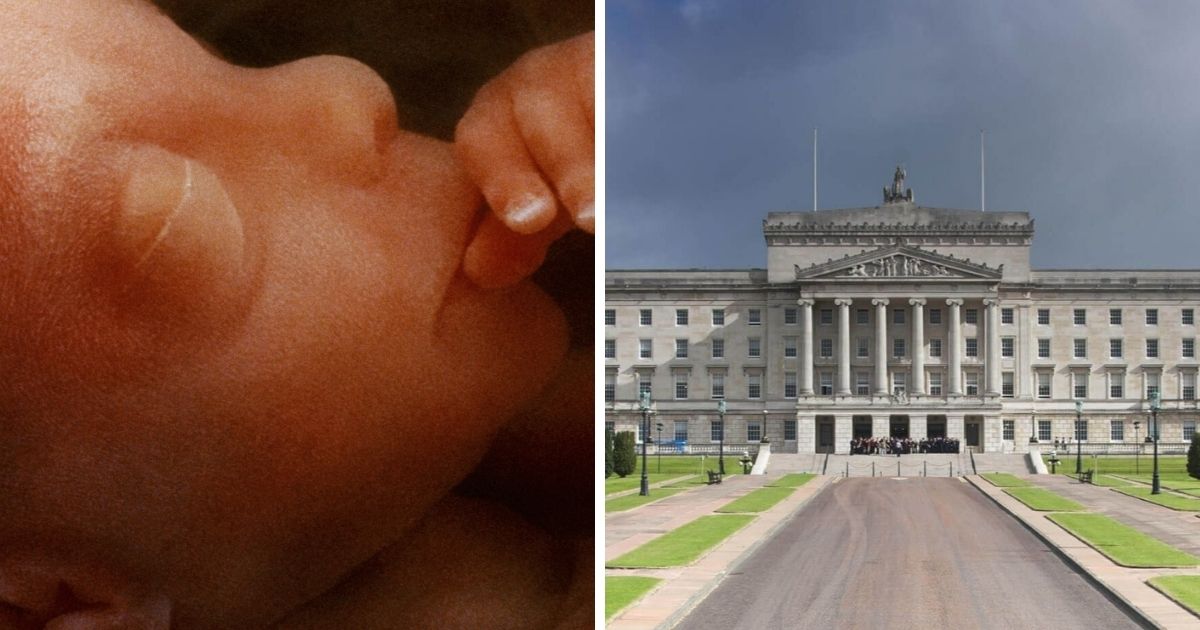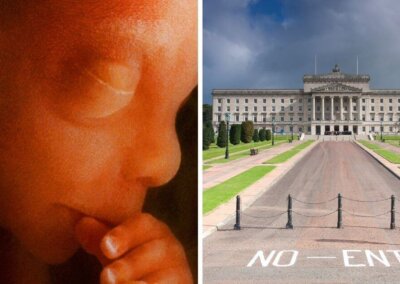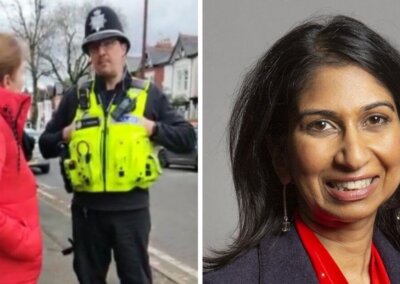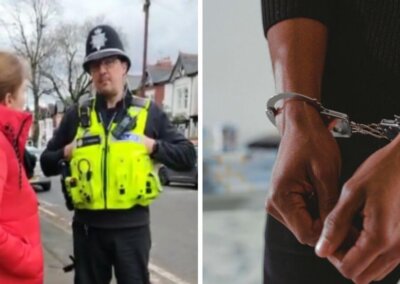Members of the Legislative Assembly in Northern Ireland have approved a Bill that will allow for the introduction of censorship zones which will criminalise offers of assistance outside of abortion clinics in the region.
On Thursday 24 March, by a vote of 55 to 29, MLAs in Stormont approved the Abortion Services (Safe Access Zones) Bill introduced by Green Party MLA, Clare Bailey. The Bill makes it a criminal offence to “influenc[e]… a… person [seeking an abortion], whether directly or indirectly” within “safe access zones”. The Bill will effectively criminalise offers of assistance and prayer within 150m of abortion clinics or hospitals where a censorship zone is place.
Claire Bailey MLA had attempted to fast-track the Bill so that it might be heard ahead of schedule on Tuesday 22 March. However, members of both the TUV and DUP objected to this debate being brought forward. The Final Stage of the Bill was instead discussed on Thursday afternoon.
A public consultation on the Bill found that only 13 out of 6,412 respondents were supportive of the Bill.
It will almost certainly result in protracted legal action.
During Thursday’s debate, a number of MLAs were highly critical of the bill. The DUP’s Pam Cameron, said: “I sincerely believe that this Bill will not have the impact that its supporters believe it will have, and it will almost certainly result in protracted legal action. The Bill is not good legislation. It is vague and leaves many grey areas, particularly around the definition of “influence” as an offence”.
Deborah Erskine MLA was critical of the fast-tracking of the Bill so there was a lack of time to properly discuss it saying: “If we all took a step back in relation to the legislation, I do not think that there would be anybody who would not agree that there are things that still need to be ironed out but have not been, due to the rushed-through nature of the legislation. We have not had the time that we might have had, had it not been for time constraints, to fully engage with other organisations”.
TUV leader, Jim Allister, accused supporters of the Bill of wanting “not just to have absolute legality and protection for the taking of human life [through abortion] but to quell, suppress and extinguish any opportunity for anyone to say that it is wrong”.
“The day that I turned up to my abortion appointment, a volunteer outside the clinic gave me a leaflet. It offered the help that I had been searching for”.
Prior to the vote, Alina Dulgheriu, who was herself scheduled to have an abortion but decided to not go ahead with it after receiving help from pro-life volunteers outside an abortion clinic in London, said:
“The day that I turned up to my abortion appointment, a volunteer outside the clinic gave me a leaflet. It offered the help that I had been searching for. I weighed up the two options I had before me, and I chose motherhood. I chose to accept help to get housing, help to find a job and help to obtain a pram, a cot and nappies. It wasn’t easy. But with the support of the group who had given me that leaflet, I couldn’t be prouder of the life my daughter and I have charted out together”.
“[This] bill, designed to prevent us from hearing about offers of support to continue our pregnancies, will shut down options open to women who find themselves in crisis. Such legislation would have been detrimental to the course of my life”.
In 2018, then UK Home Secretary, Sajid Javid, when rejecting calls to introduce censorship zones outside abortion clinics in England, said: “introducing national buffer zones would not be a proportionate response”.
Right To Life UK spokesperson, Catherine Robinson, said: “The result of yesterday’s vote is disappointing, not least because it is so blatantly contrary to what the Northern Ireland public wants. What is most saddening about this outcome is the impact it will have on women who are unsure, or worse, being pressured into having an abortion, denying them the ability to access help from peaceful pro-life volunteers when they need it most”.
“Current laws, including the Protection from Harassment (Northern Ireland) Order 1997 and the Public Order (Northern Ireland) Order 1987, already provide wide-ranging powers for authorities to keep public order and protect women and the public from harassment and intimidation, including outside abortion clinics. It is under the pretence of liberty and choice that women are being stripped of the ability to access support provided by peaceful pro-life volunteers”.
“Countless women, such as Alina, have found the help and support they needed when kindly approached outside an abortion clinic. This law change will prevent these women from having access to this vital support provided by peaceful pro-life volunteers”.












